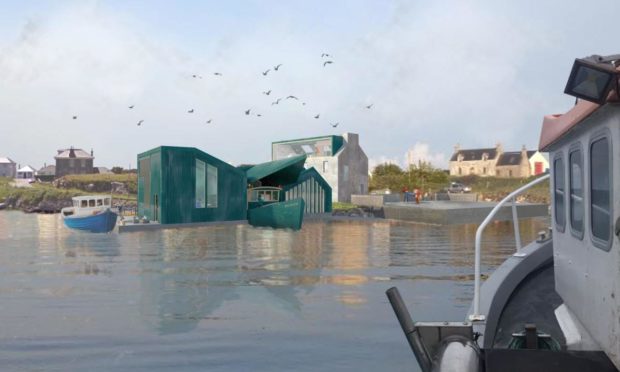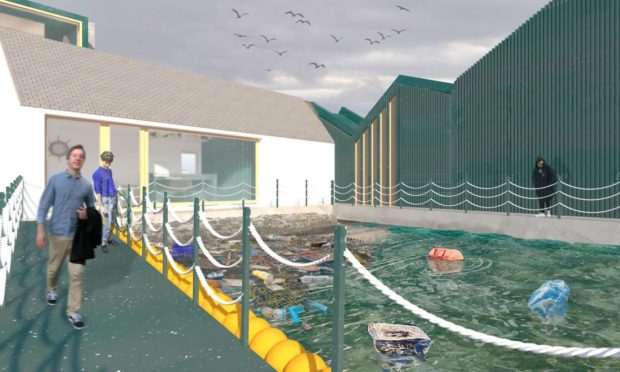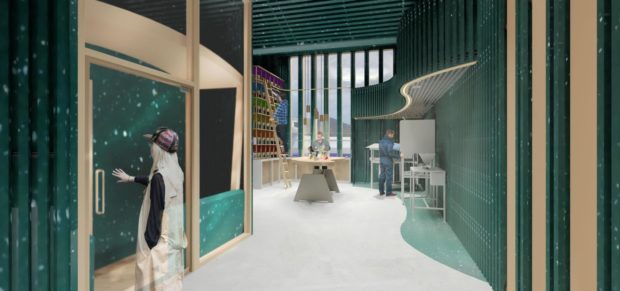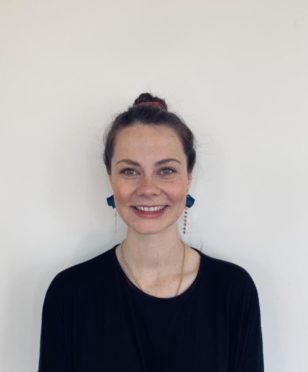A university student has re-imagined a rundown pier in North Uist, transforming it into an innovative facility tackling ocean plastics.
As part of her final year project at Edinburgh Napier University, Ann Macleod re-imagined Lochmaddy Pier as a unique hub for repurposing ocean waste. The interior and spatial design student called the project Bycatch.
The design includes a new extension into the water which would allow for the facility to catch floating plastic on site. Fishing boats would also be able to land waste plastic caught on trips directly into the facility.
Once caught and landed the plastic can be cleaned, stored and shredded before being made into desirable materials and products. These would be made on site in specialised storage and workshop areas.
A reception and kitchen area have been included in the design, as well as a catch café and shop that would sell the products made in the facility.
Impact of ocean plastics
The student, originally from Lochmaddy, was inspired to develop plans for the site after learning about the impact ocean plastics has had on the area.
She said: “When selecting a site for my project, I was told to pick something that meant a lot to me and the site at Lochmaddy Pier was an obvious choice. My family have lived in the village for years and it is really sad to see how rundown the pier has become over the last few years.”
After talking to her brother who fishes in the area she realised that fishermen in North Uist are aware of the issue of waste plastic and many catch plastic when out on their trips.
She added: “With this in mind, I thought I’d combine these two aspects and look at ways I could potentially repurpose the pier and combat the ongoing ocean plastic problem, so the idea for Bycatch was born.
“Although my design is just a concept as this stage, hopefully it’s helped shine a spotlight on the potential that some of these underused and underinvested sites have – especially in tackling important issues such as plastic was and sustainability.
“I would love if projects like mine became the norm in the future, helping preserve our beautiful islands alongside coming up with new ways of thinking that could be used in Scotland and further afield.”



